Boot, Das / Boat, The (1981)
“There’s a limit — we can only take so much pressure.”
|
Synopsis: |
|
Genres, Themes, Actors, and Directors:
Response to Peary’s Review: He points out that “we are made to feel their discomfort and claustrophobia while inside their cramped, muggy, smelly, underwater vessel [and] their monotony, constant fear, and panic when enemy ships hover above.” He argues that “the picture is frightening because Petersen uses horror-movie techniques: the giant enemy ships emerging from the mist and lurching through the water are like great sea serpents”: … [and] “the sweating, shouting, terrified men rushing about the ship in search of danger points (where water leaks in) could very well be characters in Alien.” Meanwhile, “the U-96 itself is like a room in a haunted house, where trapped men nervously listen to the spooky noises (i.e., death knells) on the outside. These men are in hell.” Indeed, they are — a version of it, anyway. Peary points out that “Peterson’s goal was to show that all men in war are victims, certainly not a controversial theme” — though the picture was “criticized by those who thought Peterson — who chose not to deal with the soldiers’ politics — was apologizing for the Nazi soldiers.” Peary adds that “the film should be praised for debunking a myth that was held forth in Germany for 40 years — that German submarine warfare was a heroic, glorious adventure.” In his review, Peary touches briefly on the fact that this “story became a five-hour German TV movie;” indeed, in the time since Peary’s GFTFF was published, several different home video versions have been released, including a 209-minute 1997 director’s cut version (which is what I watched for this review). Peary also highlights the performance by Prochnow, who “makes a strong impression as the U-boat’s commander, who hates his superiors and war.” Indeed, Prochnow is riveting (and perfectly cast, despite being older than the original commander) — and he’s surrounded by a cast of excellent performers, many of them inexperienced actors; the casting directors travelled around Germany to find men to represent various geographical areas. Just a few more interesting facts about this film, which has become a solid modern classic and a bit of a cult favorite:
Note: Film fanatics will likely notice Günter Lamprecht — star of Berlin Alexanderplatz (1980) — in a small role as Captain of the Weser. Notable Performances, Qualities, and Moments:
Must See? Categories
(Listed in 1001 Movies You Must See Before You Die) Links: |
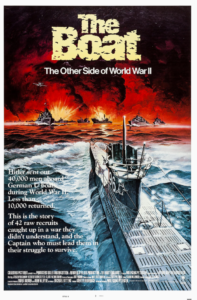
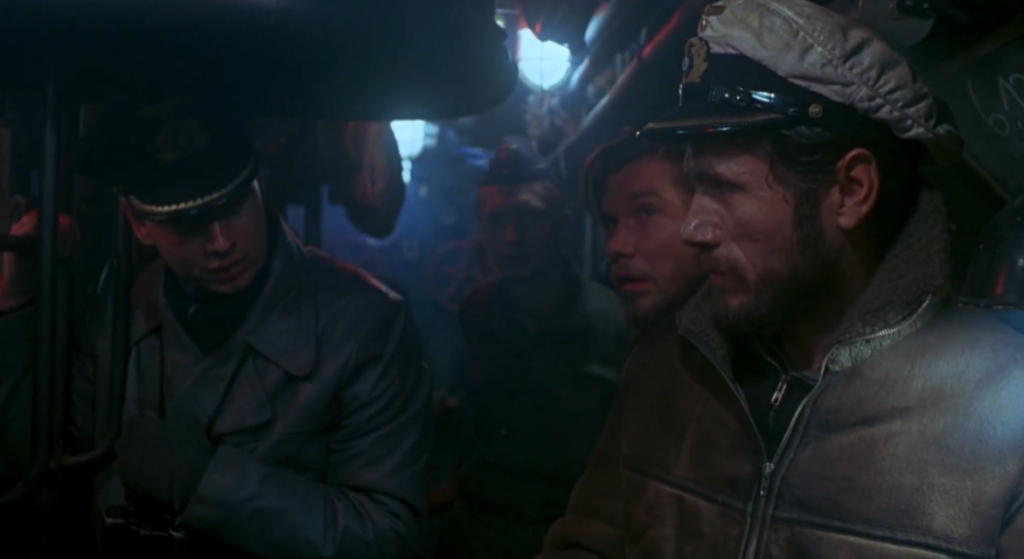
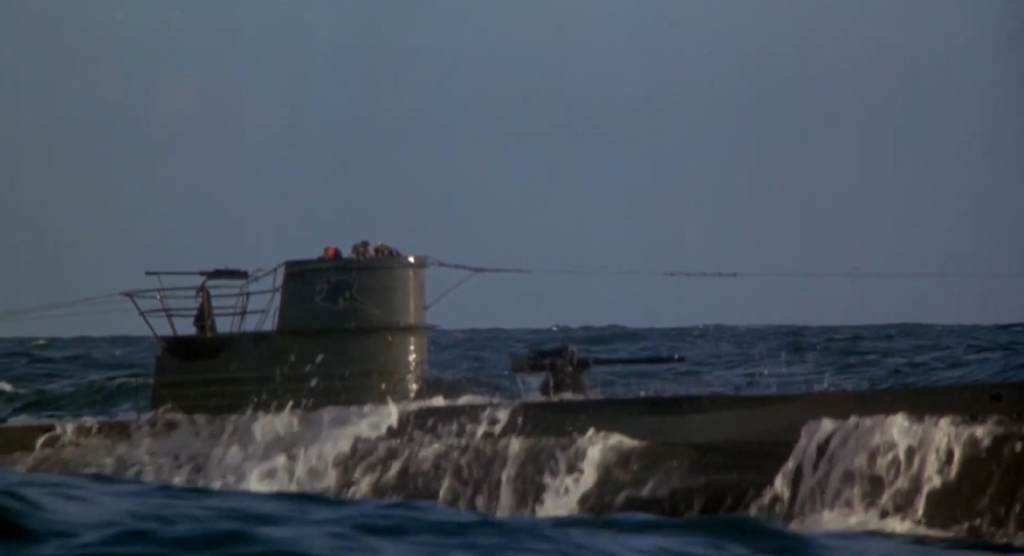
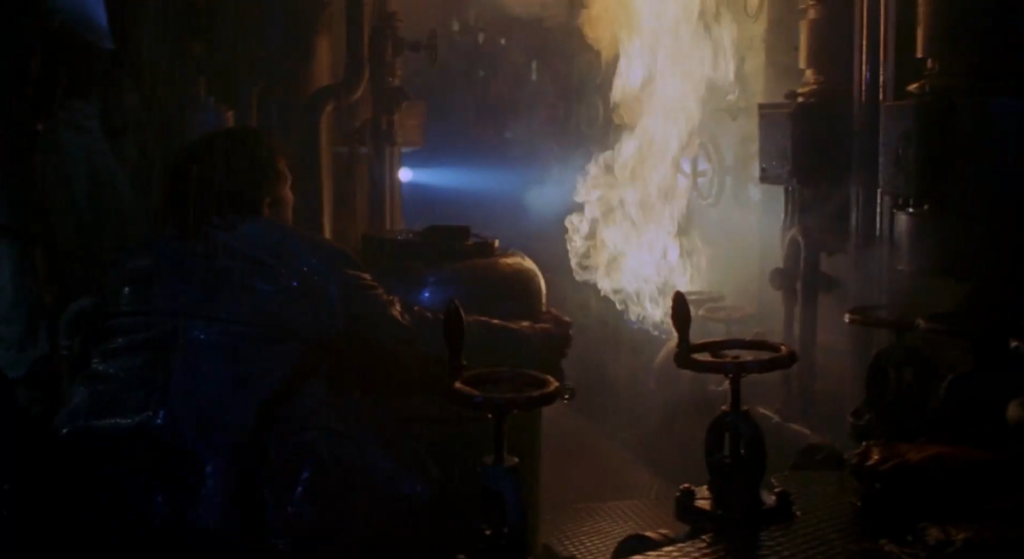
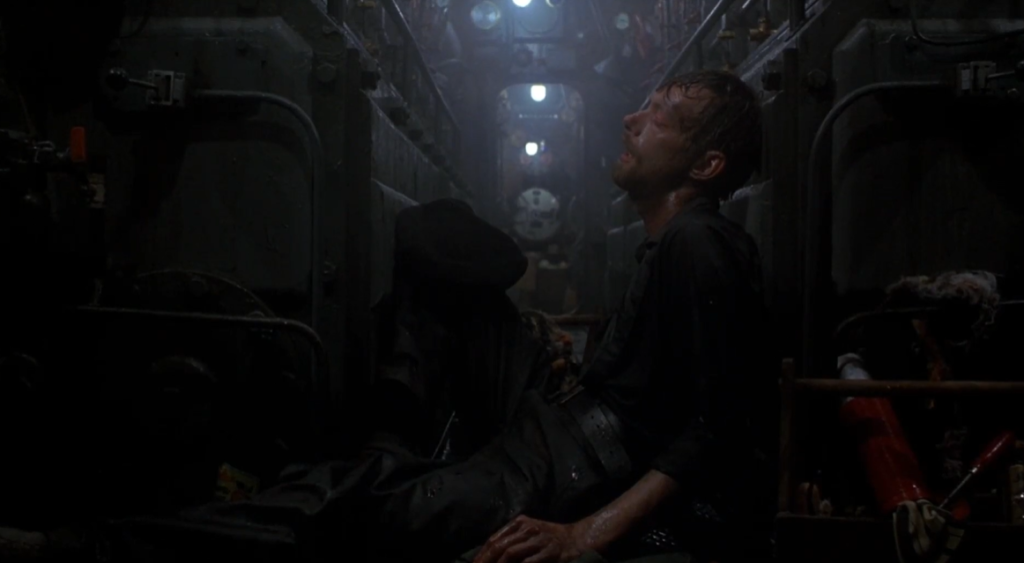
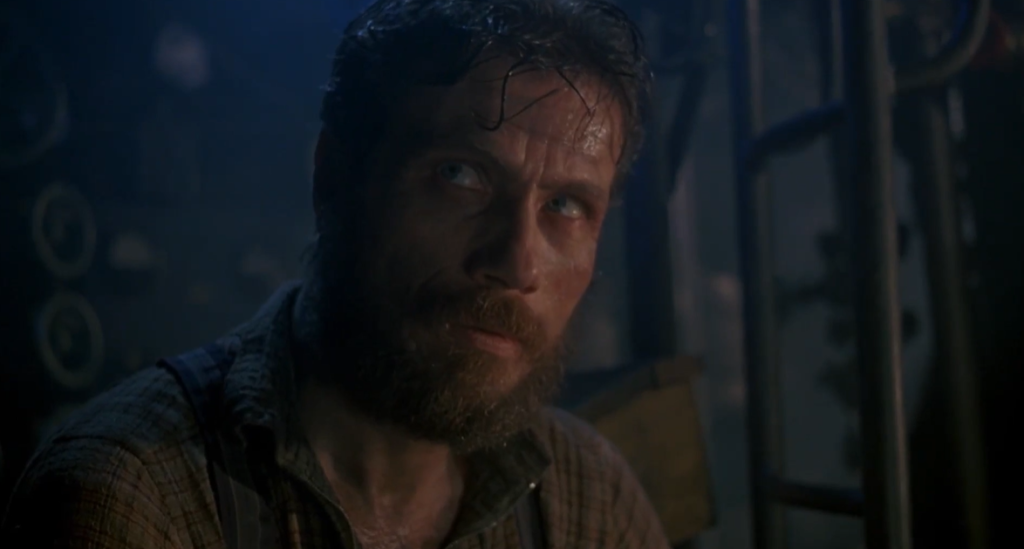
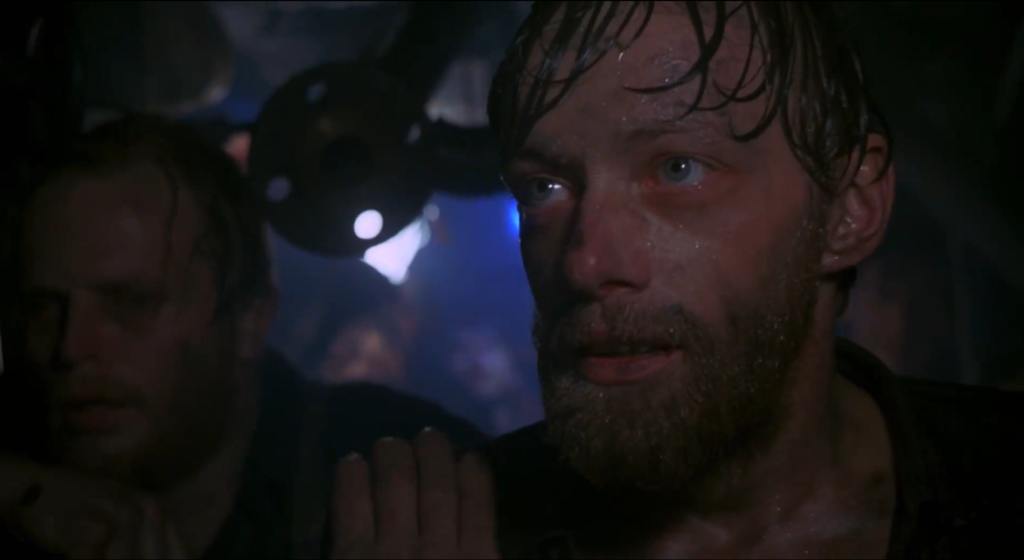
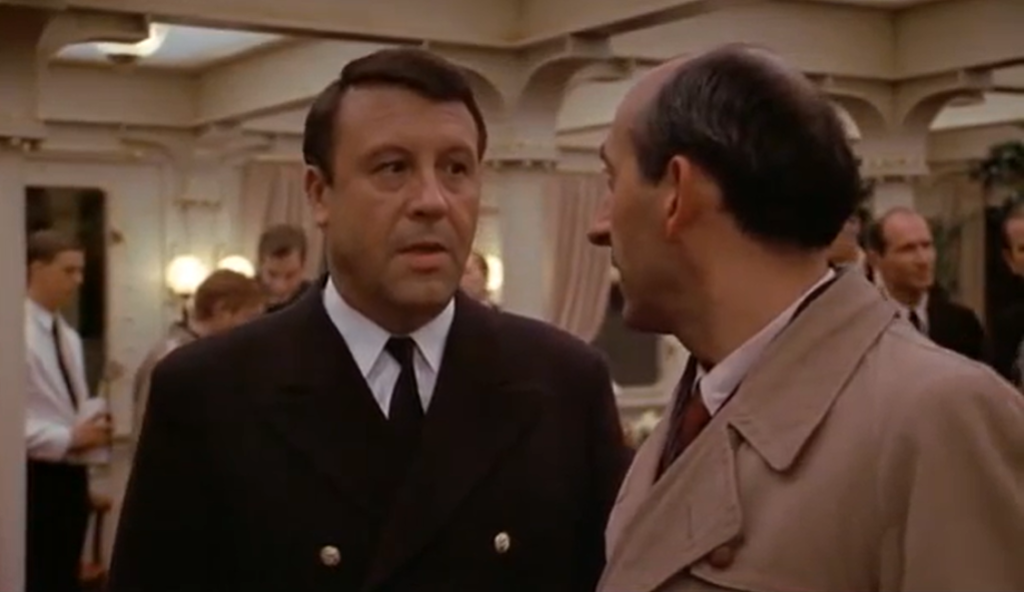
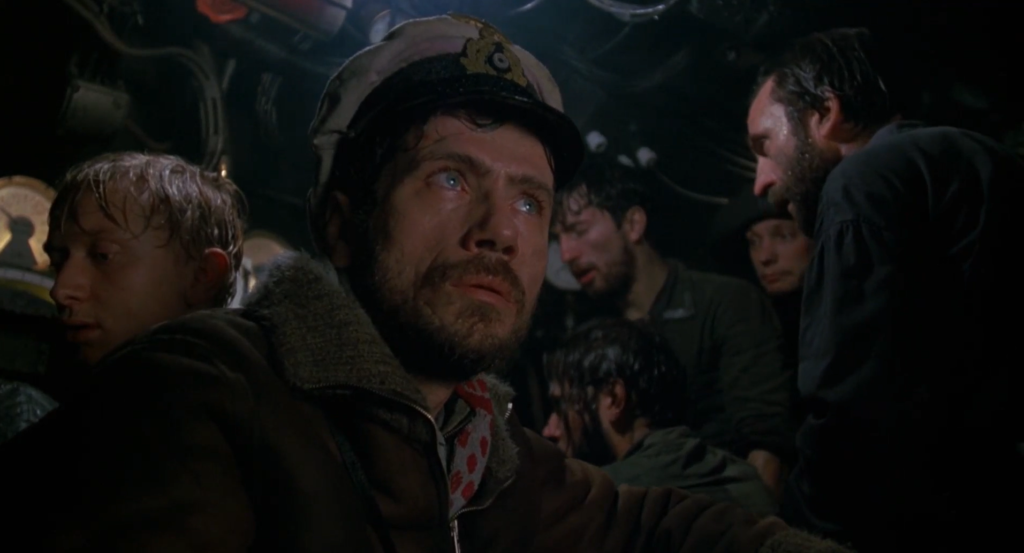
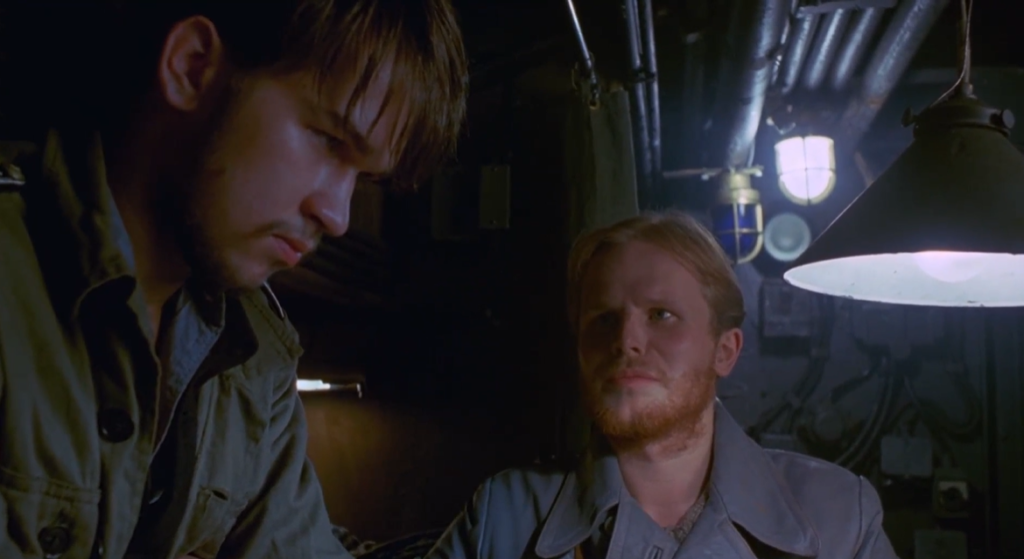
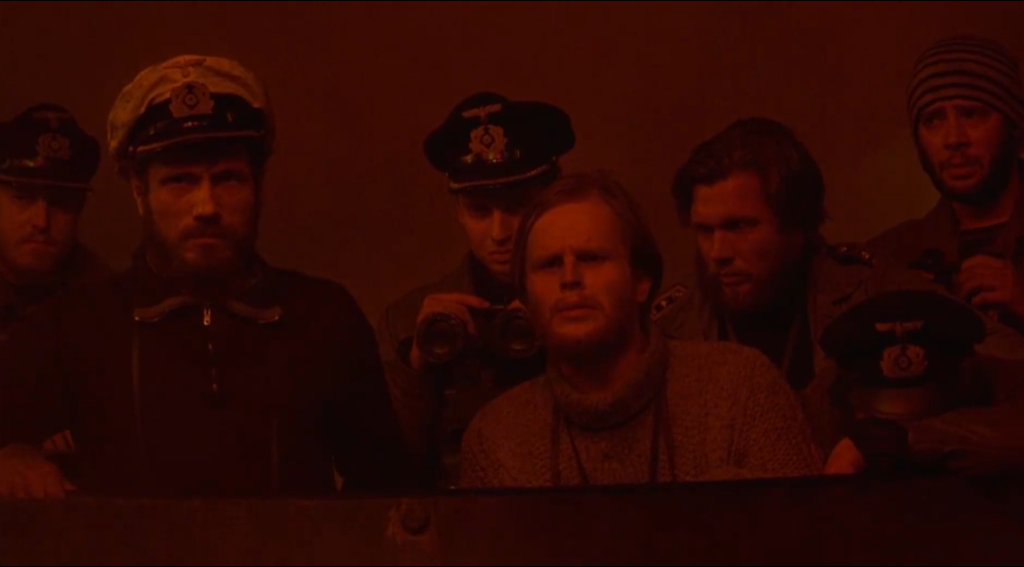
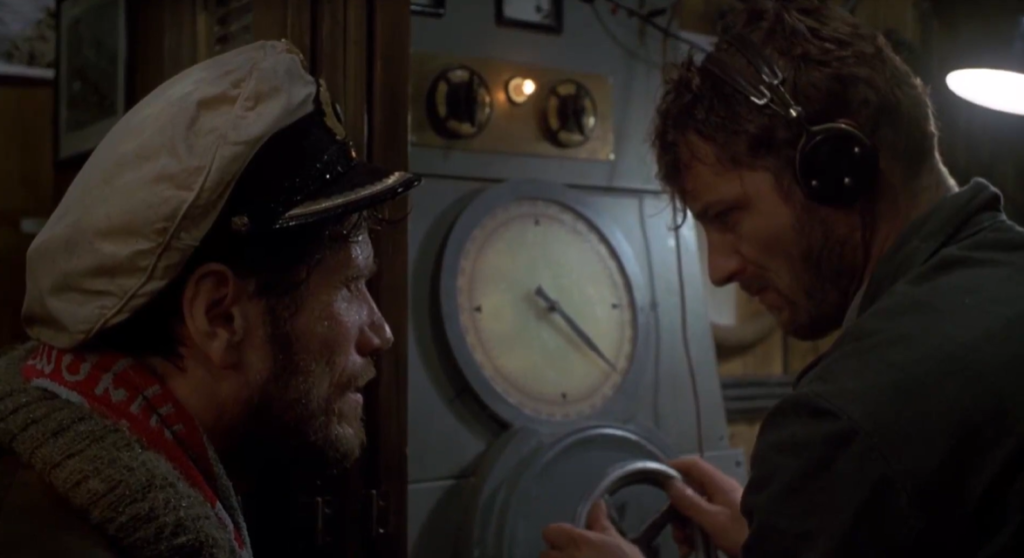
2 thoughts on “Boot, Das / Boat, The (1981)”
In total agreement, a classic and one of the greatest war films yet made. I tend to watch the TV version which runs about 320 minutes at 24fps. It’s a heavily fictionalised account of U-96 but so was the 1973 novel.
I saw this at the cinema back in ’81 (149 minute version) and it made a big impression on me, a favourite to this day.
First viewing (1/2/23). Must-see, for its solid place in cinema history, as well as its technical achievement status.
I watched the ‘original, uncut’ (300 min.) version. Even at that length, it doesn’t feel particularly long. Though it does have ‘downtime’ scenes, most of those feel functional, nothing feels like filler, and the length allows for lots of character touches. Overall, it’s all rather straightforward and consistent in its clarity.
The direction and performances (it’s refreshing when Prochnow reveals early on that he’s sick of his own country’s propaganda) are all high-caliber – as are the editing and cinematography. Technically speaking, this is about as good as it gets. Simply put, this is among the best war films of all time.